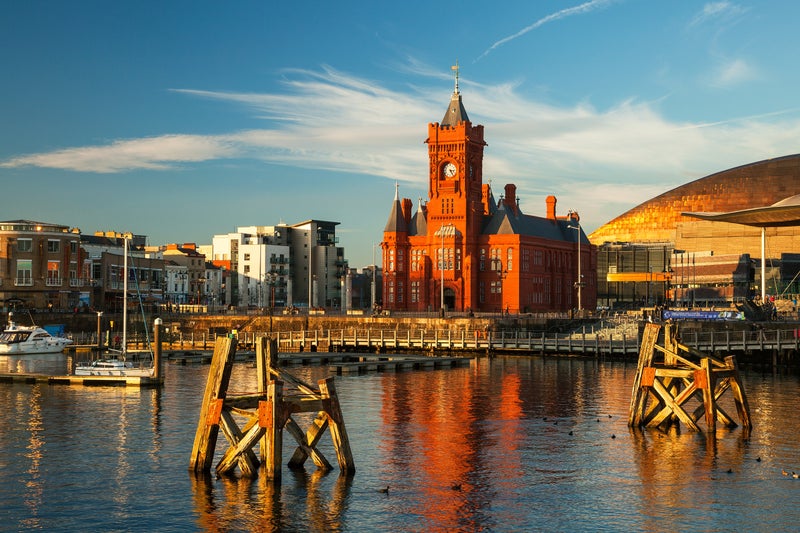Will Chinese investors still be key buyers in global markets?
Following the overseas investment guidelines drafted by China’s central bank and financial authorities late last year, the State Council of China officially approved the overseas investment controls on “irrational” acquisition in the property, hotel, cinema, entertainment and sports sectors last week.
There has already been a significant slowdown in Chinese hotel investment over the last 8 months compared to the last year, a record-high year for cross-border hotel acquisition. Several privately-owned, key global Chinese buyers, such as Anbang, Fosun, HNA and Wanda, have been monitored and investigated by China’s financial authorities. Most recently, Wanda announced that they would pull out of the Nine Elms Square transaction, a large-scale residential site in London, following pressure from regulators.
So, what’s next for Chinese investors? Will this stop them going global? The answer is NO. Chinese investors surely have to follow the guidelines introduced by the State Council. However, we have noticed some transitions in terms of direct overseas investment recently.
1. Hong Kong-based companies and family offices are increasing activity
Hong Kong, one of the world’s most competitive cities and freest economies, has always been the top choice for Chinese institutional investors and HNWIs. Many Chinese investors are setting up, or already have footholds in Hong Kong. Through their Hong Kong-based entities, Chinese investors are able to invest freely in sectors due to the different financial regulations under Hong Kong's government. For example, Hong Kong-based Lee Kum Kee acquired 20 Fenchurch Street (“Walkie Talkie”) last month, which is UK’s biggest ever deal for a single office building. China-based CC Land also completed 122 Leadenhall Street (“Cheesegrater”) through its Hong Kong entity in March. Hong Kong-based private equity firm, Joint Treasure, purchased 3 St James Square on behalf of several family offices. And Mr Gao personally acquired an 80% stake in Southampton Football Club using his family office in Hong Kong, even though the deal was originally due to go through his Lander Sports Development Company listed on Shenzhen stock exchange, last year. In terms of the hotel market, Tian An China Investments, a Chinese developer listed on Hong Kong’s stock exchange, acquired a London boutique hotel, South Place Hotel, earlier this year.
2. Encouraging global investments in other sectors such as healthcare, childcare and education
Although those sectors mentioned above are banned by the State Council of China, overseas investments in some sectors, such as healthcare, childcare and education are still encouraged by the Chinese government. Due to the recent ageing demographic issue and the removal of single child policy in 2015, China is facing challenges in providing quality facilities in these sectors.
- Healthcare – According to Bloomberg Sunset Index 2017, China’s economy is among the top five nations worldwide failing to support its increasing number of retirees. Ranked 52nd in the Global AgeWatch Index, undertaken by HelpAge International which ranks countries according to the social and economic wellbeing of the elderly, it is evident that China requires significant improvements to its policies towards its senior population.
- Childcare and Education – The number of students enrolled in private schools, particularly bilingual and dual education system schools, in China grew by c. 29% from 2011 to 2015, and increased to c. 36% in the early years sector after the removal of one-child policy boosted China’s fertility rate. This trend is apparent in large part due to parental expectations and increasing wage levels. Although China, including Hong Kong, has 744 international schools, the world’s highest figure, high-quality nursery facilities and schools are still sought-after by parents. For these reasons, China's government encourages state-owned enterprises and large size corporations for overseas investment in healthcare, childcare and education sectors, even though the capital outflow is currently monitored. Developers and enterprises are encouraged to acquire businesses abroad and leverage their know-how into China. We have been approached by several investors showing their interests in these sectors.
3. Domestic large-scale tourism real estate complexes are booming
In order to reduce the gaps between urban and rural areas while boosting China’s domestic tourism, the Chinese government has encouraged developers to build so-called cultural and tourism villages with ’characteristics’ across China, introducing several policies to support this trend. China’s Ministry of Housing and Urban-Rural Development announced “There will be c. 1,000 characteristic towns to be built by 2020” in The Notice to Develop Characteristic Town last year. The cultural and tourism villages can be described as large-scale tourism real estate complexes with ‘characteristics’ aimed at appealing to tourists through attractions, such as natural scenery, historical heritage and newly-built themed tourist attraction.
Historical towns and villages with natural landscape, such as Wuzhen, are able to leverage their heritage and natural scenery to their advantage. However, for newly built themed villages, finding suitable ‘characteristics’ can be more difficult. Some developers create famous cities or towns in China, such as the Swiss town of Interlaken in Shenzhen by Overseas Chinese Town Group. Other developers are in talks with world-renowned theme park groups, such as Lego Land and Universal Studios, to strategically incorporate the intellectual property into their complexes through joint venture partnership.

Along with hotels, we expect to see investment in healthcare, childcare and cultural and tourism villages for the foreseeable future.
We are currently helping several Chinese investors to redefine their expansion strategies both in Europe and China, and are sourcing suitable opportunities on their behalf. Acquisition and joint ventures are two common forms of cooperation, however, there might be some concerns for European companies. From a healthcare and childcare perspective, reductions on service quality due to overexpansion within a short time, and failure of governance and compliance, are major issues. To address these issues, finding a reputable Chinese party who understands the local market is far more important.
European enterprises can be reassured by the extra effort of Chinese governance and compliance by leveraging Chinese parties’ local knowledge, and working closely with them to draw a bespoke long-term plan without overexpansion. For cultural and tourism villages, it might be argued that there is a possibility of losing control of their intellectual property (IP), however there are many successful examples such as Disney Land and Universal Studios who show no concern of losing control or their IP. By forming a joint venture with Chinese parties, they can further expand their market coverage and prepare themselves for China’s domestic tourism boom.
The shifts we have seen recently show no sign of slowdown for Chinese investors going global. Even though the Chinese government disapproves of cross-border acquisitions in certain sectors, some sectors are increasingly booming and there are many routes to go abroad. There is no doubt that Chinese investors will still be shining stars in the global market.


















